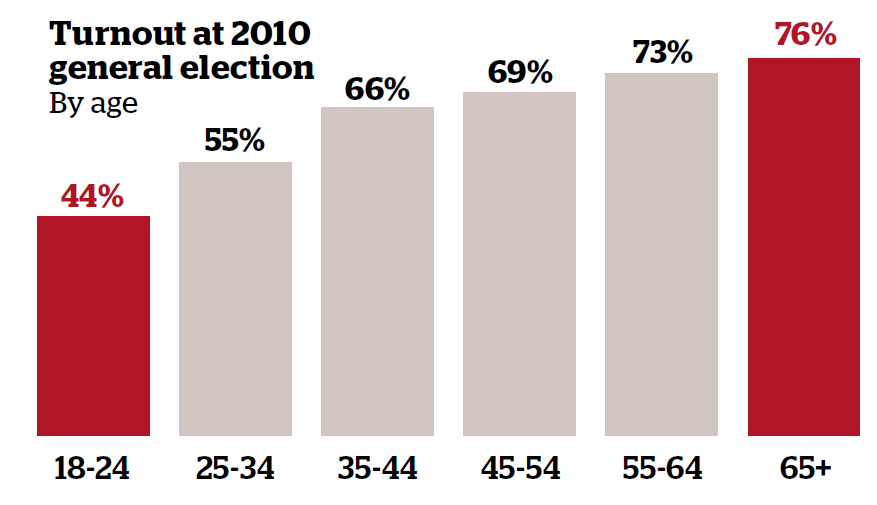The Public Choice school of economics provides valuable insights into the workings of a democracy. It analyses and explains the behaviour of politicians by studying incentives. It argues that, in the political realm as in the economic realm, incentives matter and people respond strongly to the incentives that they face. Politicians aim to maximise their share of the vote; they want to get elected and, after, stay in power. So why would enlarging the benefits offered to pensioners or, some might say, bribing them, achieve this end?
Firstly, pensioners are numerous. Current figures reveal there are 10 million people aged 65 or over living in the UK. The proportion of old people in the UK is growing too. In 1971, 20% of the population was aged 60 or above, but by 2020 this figure is projected to be one third. Old people are not just large in number, but are more likely to vote too. In 2010, 94% of those aged 65 and over had registered to vote, with 76% of these going to the ballet box on election day. Contrastingly, only 55% of people aged 18-24 were registered to vote, with only 44% of registered voters in this age group ultimately doing so. Evidently, the power of the 'grey vote' is enormous and it is not hard to see why UK governments pursue the policies they do towards old people.
Now, this analysis does not, of course, mean that electoral incentives are all that politicians care about, or that all pensioners only vote to maximise their own self-interest. What is does show however, is that, as in much of society and life, many phenomena can be explained by a simple study of incentives and the analytical framework of economics. The economists' toolkit comes in handy once again.

No comments:
Post a Comment